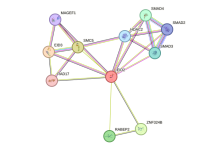What is Cystitis?
Inflammation of the bladder is referred to as cystitis. Women are most likely to suffer from it. The primary cause of cystitis is Escherichia coli infections. Due to the female anatomy, bacteria such as E.coli, which normally inhabit the colon can travel from the rectum to the vagina, up the urethra, and into the bladder more easily than they can in the male anatomy. In most cases, this condition is not dangerous, but it usually signals the start of bigger problems down the road.
Sometimes kidney problems can cause cystitis to recur. In the urinary system, kidneys and bladders strike most frequently. At the lowest rib level, the kidneys lie on the back of the abdomen, one on each side of the spine. Bladders are located in the pelvis of the lower abdomen. As a result of their complex work, these two organs are responsible for removing the bulk of waste matter from the body.
Symptoms
There are a number of symptoms associated with cystitis, which can be extremely uncomfortable for the patient. Patients complain of frequent urination and burning during urination, along with an almost constant urge to void. A feeling of pain may be felt in the lower abdomen and pelvis. There may be thickening, darkening, or stinging of the urine. Blood or pus may be present, as well as an unpleasant smell.
When passing urine, the ‘scalding’ sensation indicates that the inflammation has spread to the urethra. There may also be some pain in the lower back in certain cases. As the disease progresses, the body’s temperature may rise. Cystitis in the chronic form has similar symptoms, but it usually does not cause a rise in temperature or a rash. There is almost always a deterioration in the acute form of the disease as a result of improper treatment with suppressive drugs during the acute phase.
Causes
The cause of cystitis can be infections of the kidneys, urethra, or vagina as well as infections in the bladder. If urine is retained in the bladder for an unreasonable period of time, irritation and inflammation may occur. Additionally, severe constipation can cause it. Infected kidneys continuously drain pus and germs into the bladder, causing damage to the epithelial lining. In addition to stones in the bladder or kidney, trouble may also result from stones in the ureter.
The bladder-wall resistance can also be reduced by childbirth injuries and major pelvic surgeries, causing cystitis to develop. The honeymoon cystitis problem also affects some new brides. When the bladder wall becomes swollen and ulcerated, it is unable to hold the normal amount of urine. As a result, bacteria can enter the bladder and alter urine’s chemical composition. Consequently, calcium or lime can be deposited in the bladder’s walls, causing discomfort.
Treatment
All solid food should be withheld immediately at the onset of acute cystitis. Fasting on water or tender coconut water for three or four days is recommended if the patient has a fever. Taking raw vegetable juice every two or three hours is recommended if there is no fever. Carrot juice should be diluted with water and taken every two or three hours if there is no fever.
It is thus possible to redirect the biochemical energy required to digest and digest food to eliminate toxins and promote healing. During this time, it is advisable to rest and keep warm. A hot bath can relieve pain in the pelvis or alternatively, heat can be applied to the abdomen with a towel that has been wrung out in hot water and covered with a dry towel to keep it warm. Avoid scalding by taking care.
You can avoid too much reddening by gently rubbing vegetable oil into your skin. Usually, the inflammation and temperature will have subsided after three or four days of this treatment. Within the next two to three days, you should eat only ripe, sub-acid fruits three or four times per day. Among them are grapes, pears, peaches, apples, and melon, depending on availability. Although hot compresses are intended to relieve pain, cold water compresses to the abdomen are most effective at relieving pelvic congestion and stimulating skin activity.
It is important to avoid chilling when using compresses, however. It is recommended that the patient gradually move on to a well-balanced diet, which includes seeds, nuts, and grains, as well as vegetables and fruits after undergoing an all-fruit diet. During mealtimes and while cooking, the patient should avoid refined carbohydrates and salt.
Electrolytes are disturbed by salt, which tends to raise blood pressure, which is already elevated in kidney disease. Meat, fish, and poultry should not be consumed as part of the prescribed diet. Uric acid is produced by them. Flesh foods are also responsible for most cases of food poisoning and infections that can lead to gastritis and colitis.
Chronic cystitis patients should follow a strict dietary program designed to cleanse their blood and tissues while providing a rich source of natural vitamins and minerals in balanced proportions. A seven- to ten-day restricted diet can be adopted by the patient. Fresh fruits, mainly apples, pear, grapes, melon, peach, and pineapple, paired with a glass of buttermilk, sweetened with honey, upon arising: A glass of unsweetened apple juice or carrot juice.
Mid-morning: Coconut water that is tender and refreshing. With a tablespoon of honey, a salad of raw carrot, beetroot, and cabbage is served for lunch. A ripe apple may follow. One cup of unsweetened grape juice mid-afternoon. Dinner: A green leafy salad and fresh fruit, preferably melon sweetened with honey and green leafy vegetables. A glass of mixed raw carrot and beetroot juice should be drunk before retiring.
A well-balanced diet, including seeds, nuts, grains, vegetables, and fruits, should be introduced after the restricted diet. In spite of recovering from the chronic condition, the individual should live solely on vegetables or on tender coconut water or raw vegetable juices once or twice a month. To keep the patient cured, water treatment and other health-building methods should be continued as much as possible.







